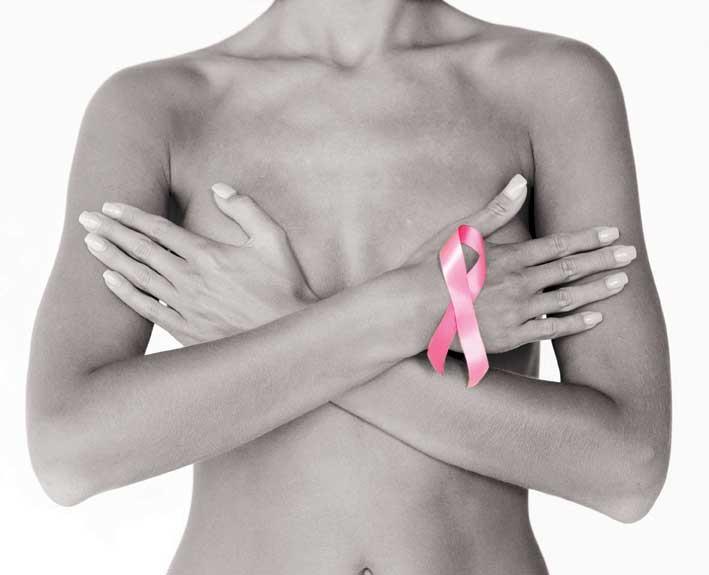The psychological issues of dealing with breast cancer are often more troublesome than the physical ones. Patients may face issues of insecurity, sexual intimacy and fear. Their loved ones also have their struggles but often bottle up their feelings not to burden the patient with more worries.
Action for Breast Cancer Foundation has stepped in to provide much-needed psychological support. At the foundation's offices, a room dedicated to Helen Muscat, the Foundation's founder, is now ready to host the first clients benefitting from the new support service.

Memories of Helen Muscat and the way she lived and dealt with life's challenges have been compiled in a book launched a few days ago, 'Her Way - Helen's Inspiration to Life'. All proceeds from the book's sales will support the new service.
"Helen was a tremendous personality. She had an impact on everyone she met. For some, she was also a role model. She left a legacy, and we are doing our best to continue that through offering hope," Esther Sant, the current chairperson of the foundation, says.
"When someone has cancer, the psychological issues are more troubling than the physical ones. The significant other goes through a lot and even the smallest child can act up, because they're in a way neglected," adds Betty Lee, a member of the foundation and a survivor of breast cancer herself.
The patient's loved ones are also coping with their own struggles. Most partners admit that they often keep their emotions hidden, because they feel the patient is already going through so much.
Anna Catania
Darlinka Barbara
The service will be offered by health care professionals Anna Catania and Darlinka Barbara. Anna explains that the patient often needs psychological help at the different stages of illness. Upon being diagnosed, these patients' lives seem to pause for a while, and then later on they need to deal with therapy, the hormonal changes, with losing hair and perhaps with losing a breast. Following treatment there is the inevitable fear of reoccurrence.
"Medically, Malta is providing the very best service it could. But there is a vacuum when it comes to psychological help, and we are targetting that," she says. "You don't think straight when you're diagnosed with cancer, because it is highly associated with death. But this isn't always the case. In fact, breast cancer has one of the highest survival rates."
Esther Sant
It is very difficult for mothers to explain the illness to their young ones. "I strongly remember one patient who decided to let her children shave her head, because she did not want them to start finding hair on the pillow and be shocked. Her husband and the boys did the same thing, and they had great fun with it," Betty recalls.
Psychologist Darlinka Barbara explains that not every patient of breast cancer reacts in the same manner. Some are hurt at the fact they no longer feel female, others might react with anger at being targetted themselves. "Many start facing existential issues. They question whether they'll survive or whether it's all worth it. But support normalises the pain, the experience. You don't feel like a sore thumb sticking out. Knowing others have dealt with it takes away part of that pain," she continues.
Betty Lee
"Most clients admit that most often it is not the techniques or the words a therapist says that help. Rather, it is just having someone genuinely listen to you for a time. Think about it, how often do you get one hour of undivided attention? This is one hour, just for you."
The illness brings with it sexual implications. "I've met women, who stopped feeling comfortable undressing in front of their partner, because they felt ashamed to show their changed body. Some even refuse to leave the house." Anna says. "Some might feel worse about losing their hair than losing a breast."
"You do get through it by being positive, as clichéd as that sounds. I write about my experience and I joke about it," Betty Lee says. "Because I'm comfortable speaking about it, others around it are too, but different personalities will tackle it differently."
Although breast cancer is highly associated with women, men too can be affected. In Malta, about eight men a year are diagnosed with the illness.
Esther admits that people in Malta are much more cancer aware now and people as young as twenty are asking for mammograms, even though they're too young to have one. Unfortunately issues arise with elderly women who do not speak up when they feel a lump, sometimes because they are too scared to do so.
"I wish I could take the illness away from these patients. But that I can't do, so we're doing what we can," Esther says. "There is support. If you need help, then you must help yourself get it."
HOW TO CONTACT THE FOUNDATION
Patients and their loved ones are eligible for free sessions of counselling. Those interested should apply with a referral from a medical professional. For more information email [email protected] or call 77771806.